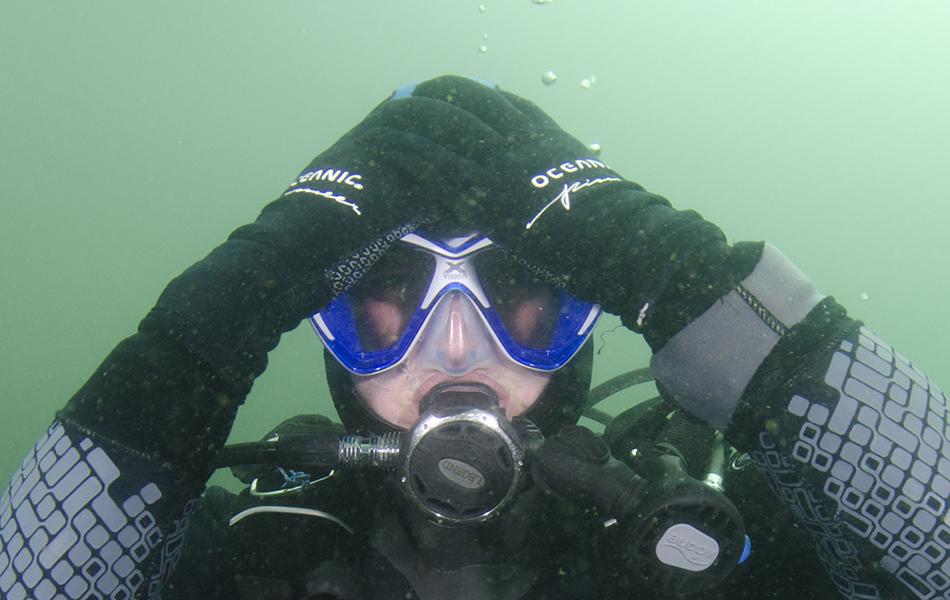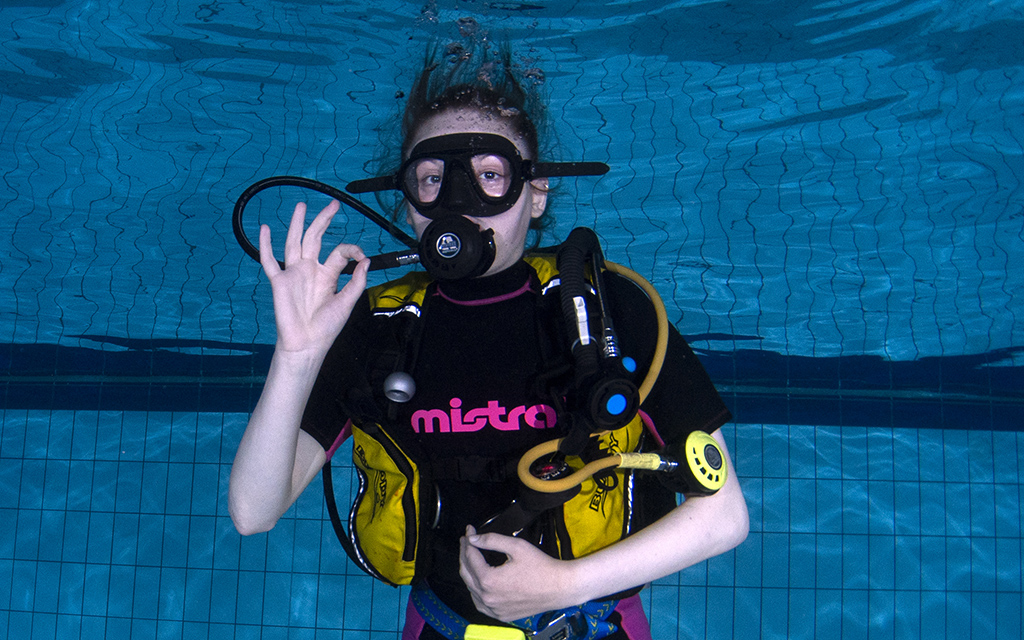
So, you’ve decided to take the plunge and learn to scuba dive? We’re delighted to have you on board! Learning to dive is an experience like no other as you ‘find your fins’ in our remarkable underwater world.
If you are learning to dive in 2025 then you have an exciting year ahead. To whet your appetite, here are our top five things you will learn as a new scuba diver.
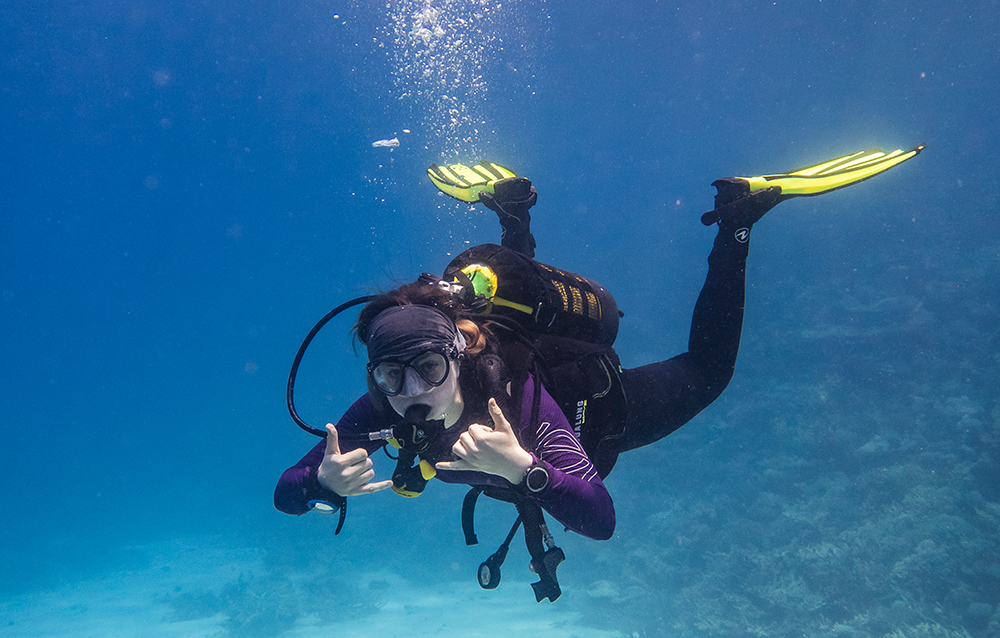
Buoyancy
Ever wondered what it’s like to feel weightless? Well, as you learn to dive, you will discover that exact feeling as you perfect the art of being suspended in the water. Imagine being fully supported by the ocean as you dive, as if you are flying. That’s what you’ll get when you master your buoyancy!
It may take a little time to crack but with your BSAC training, you’ll be shown what to do and with practice, you will steadily progress your buoyancy skills until you are gliding through the water like a pro. And it’s not all about looking good. Developing good buoyancy skills means you use less air and energy as you dive and are safely in control.
Being able to maintain a steady position in the water at any depth also means you can confidently explore the underwater world, including features such as wrecks or coral reefs, without disturbing or damaging its delicate marine life.
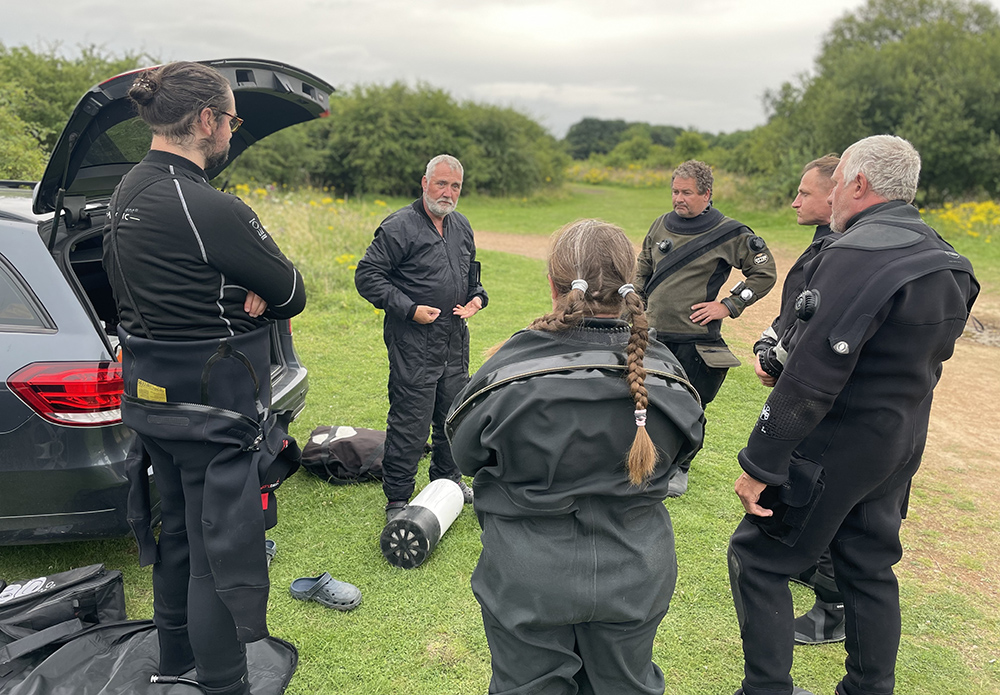
Teamwork
Scuba is a pastime to be shared, and when you learn to dive you will soon realise just how important teamwork can be to a safe and enjoyable experience. Diving in a buddy pair, you will learn how to keep yourself and your diving partner safe. Not only that but being able to share what you see with your buddy takes the enjoyability factor to another level. Add in sharing the dive trip experience with other members of your BSAC club and you’ll soon find you have a whole new group of friends to make magical memories with.
How to equalise your ears
As well as perfecting neutral buoyancy, there are other key skills you need to learn to be able to stay comfortably under the water. And this includes learning how to equalise your ears.
If you have ever felt your ears block or pop when flying or driving up a mountain road, then you will recognise the feeling of unequal pressure between your outer ear and the air-filled space of your middle ear. If this squeeze occurs underwater, not only can it be painful but also risks injury to your ear as you descend, unless the pressure can be relieved.
During your Ocean Diver training, you will learn a cool trick called the Valsalva manoeuvre, where you pinch your nose and blow out through your nostrils until the pressure balance in your ear is restored. Once you master this skill, you will soon find you are automatically equalising your ears as you descend on every dive.
Essential water safety skills
Safety is essential to the enjoyment of scuba diving. Which is why essential water safety skills are at the heart of BSAC diver training. Right from the get-go, you will learn how to keep you and your buddy safe under the water. And, while it may feel a little daunting at first, you will be surprised by how quickly you pick up these safety skills and before you know it, they become second nature!
From buddy checks and maintaining your kit, to rescue drills, diver first aid and diving planning, there’ll never be a dull moment as you learn to dive! And everything is planned around ensuring you get the most enjoyable and safe experience from your diving.
Another thing that is so good about your BSAC scuba diving training is that many of the essential safety skills you’ll learn, such as teamwork, first aid, planning, and communication, can also be used in your everyday life out of the water!
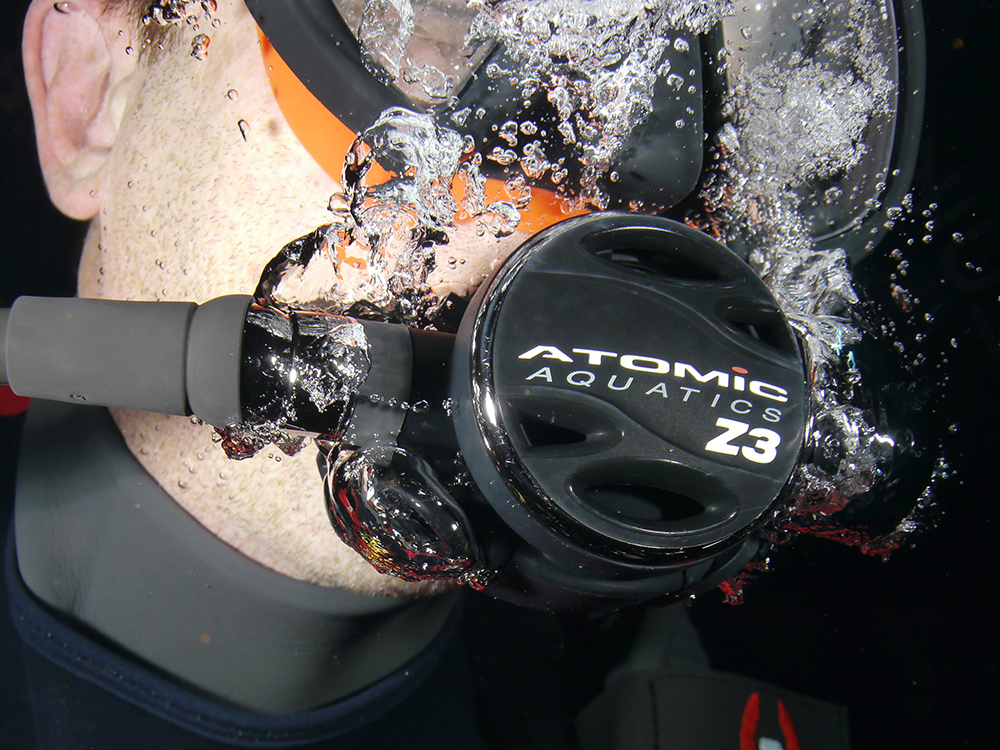
That there’s nothing like breathing underwater!
You will never forget the first time you put your head under the water with your scuba breathing apparatus. And it’s a totally unique – and personal – experience.
It may feel strange, alien, even a little scary but under the guidance of your instructor, you will be in safe hands. And when you realise that you can breathe as you feel the water around and above you, it’s a feeling like no other!
Keeping your breathing slow and steady, your senses come alive as you tune into the sounds, sights and sensations of being underwater. As you become used to the scuba regulator in your mouth, you will regulate your breath to a natural, rhythmical pattern. As you do, you should feel a growing sense of calm as you settle into a truly immersive experience that will open up a whole new world of underwater exploration and adventure!
Scuba diving help
BSAC has a range of resources to help supercharge your learning journey! Hone at home videos, quizzes, eLearning, webinars and more available in the online learning hub.




